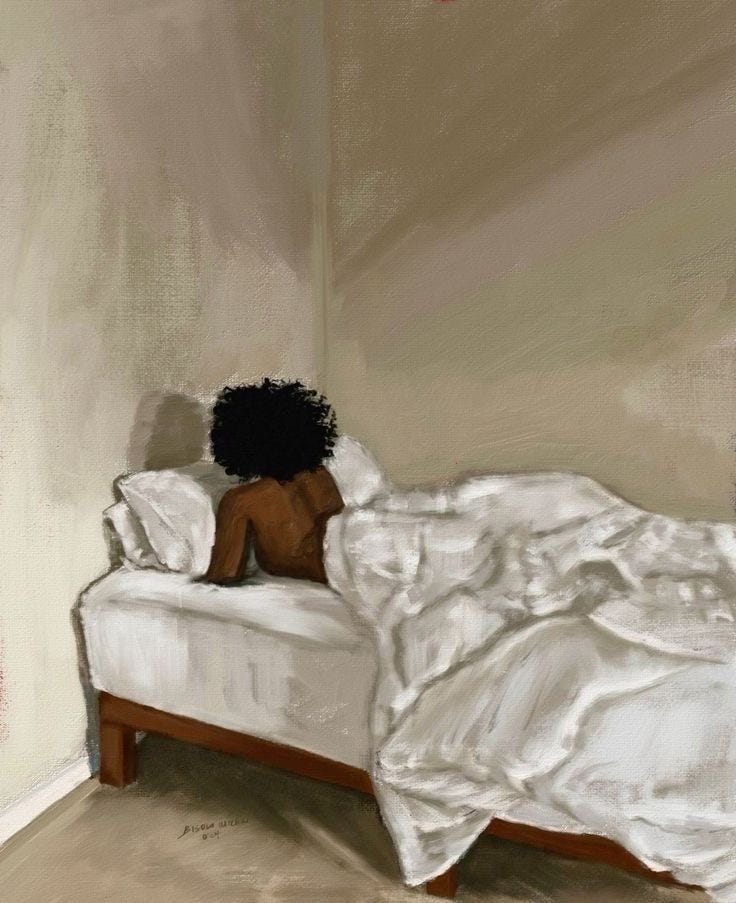Colourism is here to stay; like the wise in the parable of the builders, its foundation is set in stone. It is embedded in countless societies irreparably. Effortlessly imbued in conversations–evident to the depth of its roots. I was having a conversation with a friend last week about a particular musician from my home country, Zimbabwe. While enthusiastically relaying her praises for his new album, she mentioned that he was married. This caught me by surprise as he seemed to manoeuvre through life with the ease of a bachelor– ”Yes muyellowbone( yes a yellow bone) she emphasised. Yellowbone is a term to describe a light-skinned person. Although I had not inquired about the wife’s complexion, only her existence, she felt compelled to mention it as a detail too important to leave out. She could have said that the wife is beautiful irrespective of her fair skin, but she said yellowbone, the beauty, implied and synonymous with her complexion. Not just a wife but a light-skinned one.
Colourism is so normalised in the African community. It always manifests itself in conversations and social interactions. Often times subtly, like the earlier encounter, other times blatantly.
Walking from school a few years ago, I unintentionally overheard a conversation between two guys, with me as the subject. “She’s really pretty,” stated the first one.”nah, not really,” the second one retorted. His tone, far removed from any ill intent, did make me laugh. I wasn’t offended as I’m not everyone’s cup of tea, beauty is in the eye of the beholder after all. The last comment did, however, mentally stand out to me. “She’s just light skin.” he doesn’t really find me attractive, but my fair skin might impress a feign attraction on the undiscerning eye, a mirage of some sort.
So to him would the reverse be true? Would a dark skinned woman be found wanting in this regard? Sadly, I have heard those sentiments echoed repeatedly: she’s beautiful for a dark skin, or if she were light, she would be prettier. Some comments more disrespectfully colourist, I find it regressively futile to pen down–well, type I guess.
There’s clearly a societal hierarchy of attractiveness, and it also translates into how we treat dark skinned women. We all acknowledge the existence of pretty privilege. which by definition is the societal advantages and preferential treatment individuals, particularly women, receive due to their physical attractiveness.
If pretty privilege is in existence –which it is–and there’s a social conditioning to perceive lighter skin as more attractive, wouldn’t this translate into the way we treat dark skinned women?
The conversation around colourism and the African society is one that is usually not taken seriously, from the humour people find in it to how it now seems interwoven in speech, inseparable like a stain in cashmere. The takes online usually fixate on the African-American community or the caste system in India. I feel we sometimes neglect colourism in Africa. When I was looking for research papers on the subject, I found most of the articles were on non–Africans, while the essence of colourism might be the same at its core, there are still cultural nuances with everyone’s experience. Every side must be platformed and explored in order to progress in all corners. The abundance of colourism research papers could be dismissed by virtue of statistics since there are more people who venture into social sciences, especially at the graduate level, in those continents. It could also be the result of the inferior connotation that studying humanities has in comparison to STEM or commercial majors that some countries have , mine specifically. In my home country, for most universities, only people who have perfect scores get to choose their major. I know, it sounds absurd but it’s the norm. The rest the university chooses for them and they’re often tossed to humanities to fill out spots. So the statistics are actually misleading as a lot of these students did not willingly choose those majors.
Humanities students are often subject to the perception of being less intellectual than their science and commerce studying counterparts. Driving every intelligent student to non-humanities studies as if we do not need intellectual philosophers and literary authors. My people need to be released from the shackles of trying to make a doctor out of every smart student. The fewer people who are studying humanities out of passion, the fewer issues solved in society, the less artists, and the more we forgo revolutionary humanities students that could have been.
I remember reading an essay here on how science students have an intellectual superiority over other students. So, in the same way those science students who have inflated egos rooted in their studies were born out of a society that finds STEM subjects synonymous with intelligence, some light-skinned women also have a sense of superiority over dark skinned women because of their complexion’s “equivalence” to beauty.
When we do shed light on colourism in Africa, it’s usually from the male gaze perspective. Questioning why certain men don’t find dark skin women attractive—despite the majority of women among them are dark skinned. Criticising how they give preferential treatment to light-skinned women, or we just talk about colourism in a generalised form. While calling out men’s colourist tendencies is admirable, we should not overlook the colourism women face at the hands of other women. The colourist rhetoric is everywhere, and sadly, even some mothers do not spare their daughters from the very same ideologies they internalised in their youth.
You hear mothers discouraging their dark skinned daughters from wearing bright colours that “clash with their complexion” or the exact opposite. Mothers overpraise their fair daughters. Relatives at gatherings tell them how much their skin tone is more preferable. I’ve heard people compliment my outfit, saying the bright colour choice looks better on me because of my fair skin. As if bright clothes don’t have an obvious contrasting beauty on dark skin.
I do not take well to compliments that revolve around my complexion, as they often reek of colourism. On the other hand I notice a strange wave of compliments towards dark skinned women I find rather odd. They always throw in the girl's complexion like they cannot just call a dark skinned woman stunning and gorgeous. Maybe it's a way to combat colourism, but some of the compliments seem backhanded and performative, and I find it regressive. So anti-colourist, you reach colorist territory(I'm eager to hear your thoughts on this ). I get the same odd feeling when some white people compliment black people using a handful of adjectives –often food-related–before we get to beautiful. “African goddess,” “queen,” “chocolate,” “ nubian queen,” “caramel,” “royalty,” etc. You can just say she’s beautiful and call it a day.
“Fair skin is not beauty,” my mother, a former geography teacher and youth advisor, would often say at youth meetings. I recall people glancing in my direction with a cautious expectation as if offended on my behalf or scanning my face for defiance, only to find none. While I do think that the fixation on beauty is rather inflated, even over kindness. Basing it on something is futile as skin colour seems a bit too vain. I always took no offense because I understood what she meant. It’s a shame that it’s something that needs to be shared, as my country overly glorifies fair skin. To be honest, I do want to be seen as attractive just as much as the next person, but not when it’s at the expense or degradation of other women.
I would not be romantically involved with a man whose preference is light-skinned women; from my experience, their desires are usually ill-conceived. It’s evident in the way they badmouth dark skinned women, sometimes to me, in an attempt to appeal to me under the impression that we are united in ideology. Only for me to lose interest and disengage from communication. Sometimes I question them if the environment wouldn’t turn hostile: a habit I secretly enjoy. You’d be surprised how dumbfounded people get struggling with their cognitive dissonance in real time when you repeat their prejudiced comments back to them. “So you don’t find all dark skinned women attractive, aren’t all the women in your family dark skinned?” crickets….
On the other side of the same coin, I often see people, men and women, uniting to emasculate light-skinned men. Failing to realise that the same colourist ideologies that masculinise dark skin women while simultaneously feminising fair-skinned women are the very same that fuel the emasculation of light-skinned men. Do we not see the problem in branding light-skinned men as less masculine than dark skinned men? I’ve seen women regurgitate the same terminologies that colourist men use on them towards light-skinned men. “If it ain’t light it ain't right.” Now becomes “if it ain’t dark it ain’t right.” Some women even express disdain at the thought of dating a light-skinned man. Preference is one thing, but it stops being a preference when you speak ill of your non-preferences. I have seen people claim preference and then proceed to badmouth the complexion they don’t find attractive. On that note, you’re telling me you don’t find a single person with a certain complexion attractive? Some people are just colourists, and they disguise it as preference.
Learn to question things. Why do you prefer what you prefer? Is it genuine desire, or is it something a bit more? You then see the way the same people praise mixed or coloured people over black people and white people over other races, then you understand maybe it's some form of internalised racism. The praise and adoration, proportional to the proximity to whiteness. Skin complexion does not make one any less or more of a woman or man.
I do acknowledge that this translates differently in society, as any criticism against women will often be deeper and harsher, as it’s often fueled by misogyny. Which is a much more rampant and sometimes deadly problem than misandry. So the colourism that light-skinned men experience is less severe in comparison with the experiences of dark skinned women. However, I believe every societal flaw should be vocalised.
Thank you so much to reading.
feel free to read my other pieces








Colorism AND the disrespect of the Arts? I'm sat!
Colorism really needs to be talked about outside of a romantic lens. Colorism even affects employment opportunities. I remember being in a school group and there was a girl looking for ushers to help at an event and she went out of her way to state that it'd be preferable if the applicants were light skin. I had to call her out.
As a dark skinned & humanities student, I feel so extremely SEEN & HEARD